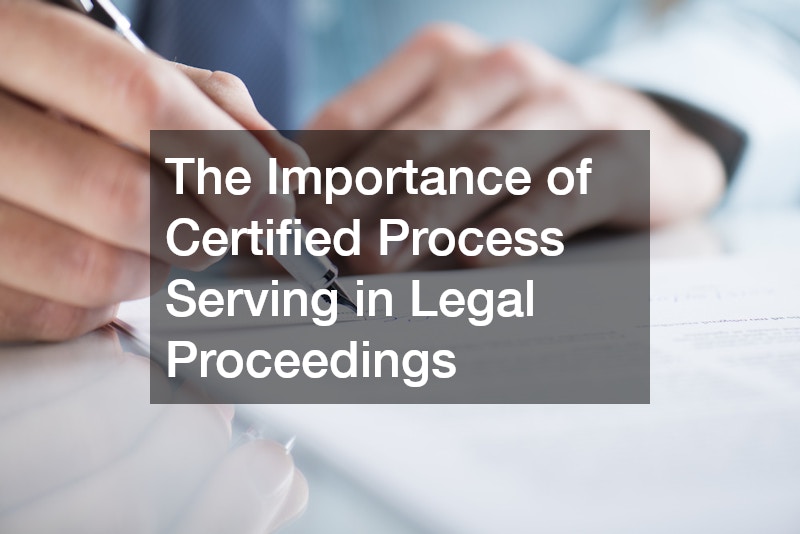In the intricate maze of legal proceedings, every step holds significant importance for the pursuit of justice. One critical component in this journey is process serving, a task that ensures all parties in a lawsuit are duly notified of legal actions. Within this domain, certified process serving plays an essential role in maintaining the integrity and efficiency of the judicial process. Let’s explore their role and how certified process servers benefit our legal system today.
The Role of Process Serving
Certified process servers are professionals entrusted with the responsibility of delivering legal documents. Their certification assures that they adhere to a code of ethics and are knowledgeable about the legal nuances of serving legal documents. This training equips them to handle difficult situations that may arise during service, ensuring compliance with the law.
They play a pivotal role in the legal system by guaranteeing that individuals receive notification of legal actions. Accurate and timely service is crucial to uphold individuals’ rights and enable the legal process to move forward. The effectiveness of certified process servers lies in their ability to navigate various challenges while adhering to legal standards such as serving documents in hard-to-reach locations.
Certified process servers also mitigate the risk of legal documents being challenged in court due to improper service. By certifying service attempts and providing detailed affidavits, they create a record that withstands scrutiny. Their expertise ensures that the foundation of due process is firmly established, supporting the judicial system’s credibility.
The Benefits of Process Serving
Certified process serving offers several benefits that enhance the legal process’s integrity and efficiency. It minimizes the chances of errors such as incorrect document service, which could otherwise lead to case postponements or dismissals. By ensuring that all parties are properly notified, it maintains the smooth flow of justice.
Another significant advantage is the reduction in legal risks associated with improper service delivery. Certified process servers possess the skills and training to handle sensitive cases, ensuring documents are served within the legal timeframe. This expertise reduces the likelihood of disputes regarding notification procedures, safeguarding the proceedings’ validity.
Moreover, certified process serving fosters trust in the judicial system by upholding high standards of service ethics and accountability. When documents are served correctly, it reinforces the perception of a fair and unbiased legal framework. These benefits collectively underscore the critical role that certified process serving plays in the judiciary.
The Challenges of Process Serving
Despite the importance of certified process serving, professionals in this field face various challenges. One common issue is locating individuals who intentionally evade service, which requires persistent effort and creativity. Certified process servers must be adept at using resources such as skip tracing to find elusive parties.
The legal complexities associated with serving different types of documents also pose challenges. Each document type may have unique requirements, and failing to comply can jeopardize the entire legal process. Certified process servers must have a deep understanding of these nuances to avoid inadvertently compromising a case.
Technology advancements and changing regulations further complicate the landscape of process serving. Professionals must stay updated on these developments to maintain compliance and efficiency. Adapting to these challenges is part of the certified process server’s role, highlighting the need for continuous professional development.
Certified process serving is a cornerstone of legal proceedings that ensures justice is served comprehensively and fairly. The role of certified process servers extends beyond mere document delivery; it safeguards the legal rights of all parties and underpins the trust and efficiency of the judicial system. Their expertise and adherence to legal standards ensure the proper administration of justice.
The challenges faced by certified process servers highlight the complexities inherent in legal processes. However, their training and adaptability enable them to overcome these obstacles, reinforcing their invaluable presence in the legal landscape. By choosing qualified and experienced process servers, legal professionals can secure the essential services that uphold the integrity of legal proceedings.
The importance of certified process serving extends across various dimensions of the legal process. From ensuring timely notification to adherence to legal protocols, certified process servers play a critical role in the unbiased delivery of justice in our world today. Acknowledging their contribution is essential for anyone involved in or affected by our legal systems.
.



